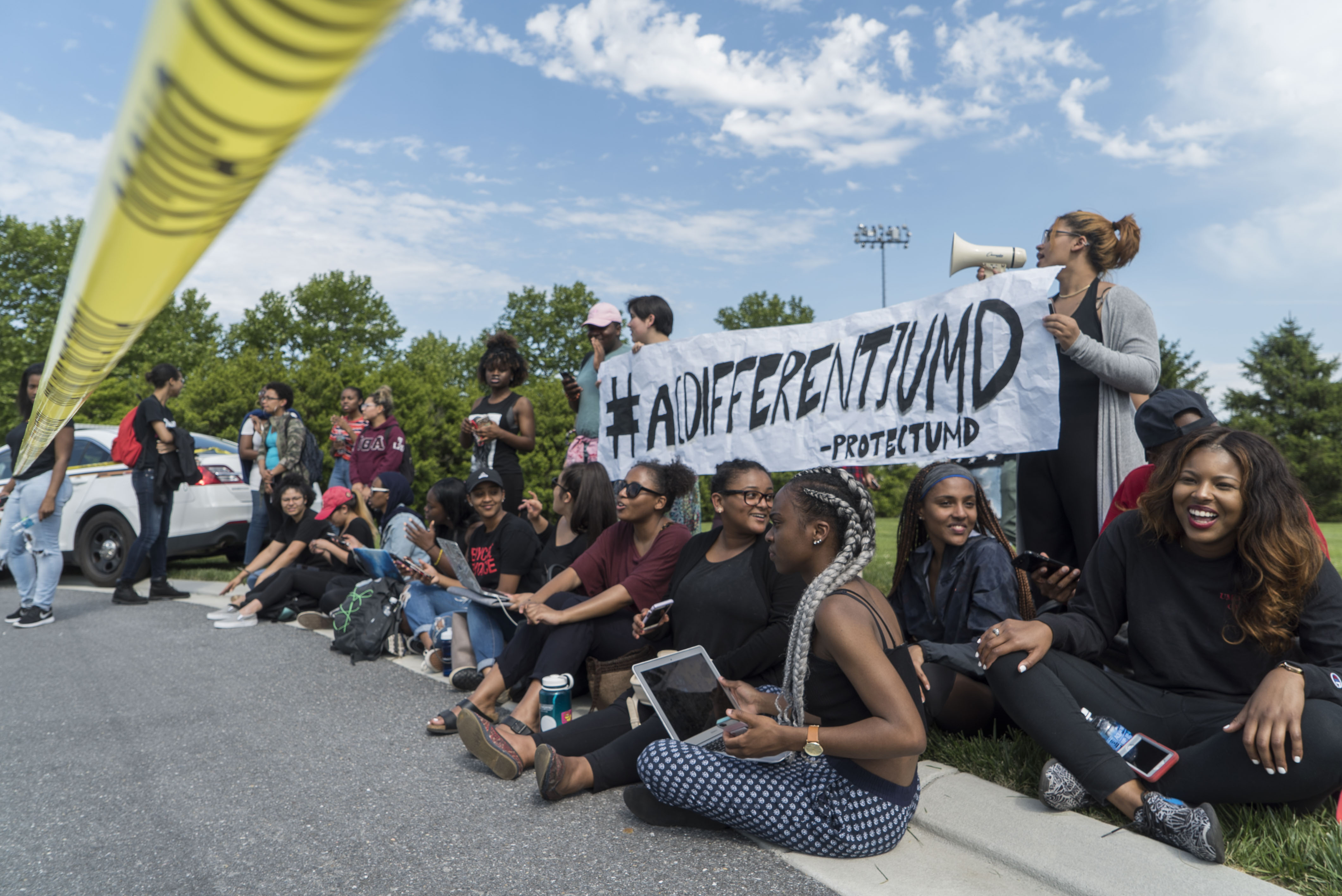ProtectUMD issued four more demands Tuesday following University of Maryland President Wallace Loh’s action plan to address hate on the campus in response to the fatal stabbing of Richard Collins III.
This university’s administration asked the Office of Diversity and Inclusion to create a rapid-response team, composed of students, faculty and staff, which would provide support to victims of hate incidents, according to a May 24 campuswide email. This university will allocate $100,000 to the office to support its education efforts, the statement read.
The coalition of 25 student groups demanded student involvement in Loh’s newly formed task group, harsher punishments for hate speech and mandatory campus climate assessments, among others.
“The hostility on our campus should have never escalated to this point,” the ProtectUMD statement read.
[Read more: UMD President Loh announces action plan to “combat hate and create a safer campus”]
Sean Urbanksi, a 22-year-old student at this university, has been charged with first- and second-degree murder, as well as first-degree assault, in connection with Collins’ death, an incident which is being investigated as a possible hate crime. Urbanski is white, and Collins was black.
Loh also tasked the Office of Civil Rights and Sexual Misconduct with developing an annual report on all hate bias incidents at this university.
ProtectUMD’s first demand asks this university to consider hate speech incidents on the campus as “cult activity.” University System of Maryland policy has defined cult activity as “groups whose activities … are, intentionally or innocently, inappropriately, causing demonstrable physical, psychological or emotional harm to students [and] interfering substantially with the educational mission of the institution.”
Their second demand asks this university to implement a zero-tolerance policy regarding hate bias incidents.
Kesanet Seleshi, a senior psychology major who is part of the coalition, said it understands that these instances “are all not to the same degree” and that a zero-tolerance policy might not be “the best course of action,” but they are open to discussion with administration about implementing more severe consequences for hate bias incidents.
“At the core, that’s all we really want. We want effective and severe consequences for these very dangerous incidents,” she added.
The coalition also requested this university conduct required “environmental scans” following a hate bias incident, which would examine how students, faculty and staff react in the following days. These scans would assess the campus climate and show how “racism is playing out on our campus,” said Sarah Eshera, a senior math and philosophy major and a member of ProtectUMD.
ProtectUMD also asked that students make up half the new task force Loh announced in his email, including students from ProtectUMD. They demanded this task force have a “significant amount of legislative power to “make formal policy changes.”
[Read more: Protestors demand action from Loh after noose was found in UMD fraternity house]
Eshera said students from the coalition should have been involved in the plan’s creation because they have been demanding actions and changes to address racism and bias on the campus since the fall.
ProtectUMD issued 64 demands in November for new programs, resources and initiatives to serve marginalized student populations and have held multiple protests since then.
“It’s definitely a first step,” Eshera said. “It’s better than what we’ve gotten in the past, but it’s problematic that none of the students were involved.”
A noose was found hanging in the kitchen of this university’s Phi Kappa Tau fraternity chapter house in April, and there have been five reported instances of white nationalist posters found across the campus since December. University Police are investigating all these events as hate bias incidents.
After the noose was found, ProtectUMD held a sit-in at the Main Administration Building requesting immediate university responses to suspected hate speech, as well as the creation of an external review board to investigate on-campus hate bias incidents.
“This impacts all of us, and we all must work together, so to get these changes implemented, ask students for feedback and include them in the process,” Seleshi said. “It’s the only way for change to truly happen on this campus.”
ProtectUMD requested in its response two meetings with Loh and his cabinet this summer. They want the first to occur within the next few weeks, according to the statement. They plan to discuss this university’s response to each of their four demands and the progress made so far in Loh’s action plan.
Eshera said she is hopeful for the coalition’s meeting with the administration.
“This was a lot more serious of an act than in the past, but also [the administration] will hopefully be held accountable for what they’re saying,” she said.



